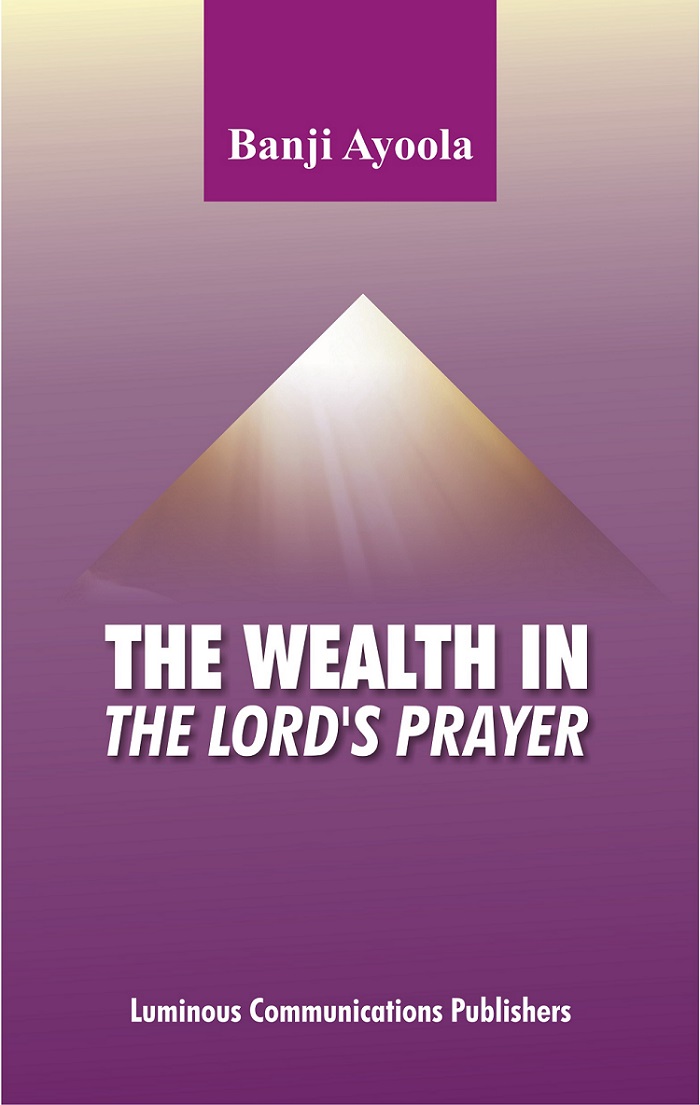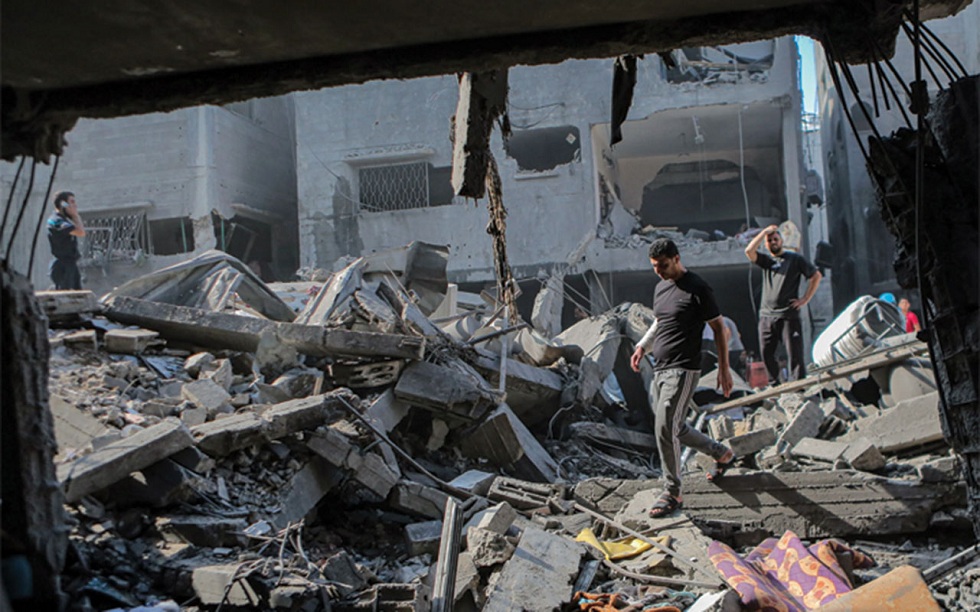Men stand on top of the rubble of a home targeted by Israeli air raids in Shati refugee camp. Photo: Abedelhakim Abu Riash/Al Jazeera
Contradictions around the Israeli-Palestinian conflict have been ever salient and even more boldly in recent developments as rooted claimant sentiments, once again with anti-peace and disruptive acts, emerge with the promise of a further resilient conflict. The roles of World state actors and interventions to date bring questionable undercurrents of the conflicted region to the fore.
Despite years of dialogue, the Israeli/Palestinian conflict has remained not only unresolved but a threat to the international community. The latest Israel-Hamas war has claimed at least 3,200 lives on both sides since Hamas launched an unprecedented surprise attack on October 7, 2023.
Retaliatory Israeli air strikes have battered Gaza, killing hundreds of Palestinians and smashing buildings, tunnels, and the homes of Hamas officials, as the Israeli Prime Minister, Mr Benjamin Netanyahu, vowed “mighty vengeance for this wicked day.’
“We’re going to be attacking Hamas severely and this is going to be a long, long haul,” a military spokesman told news agencies.
Israeli officials, following their vow of a crushing response, cut off access to water, fuel, and electricity for the 2.3 million Palestinians who live in the besieged Gaza Strip, where a blockade first put in place by Israel in 2007 has created deteriorating humanitarian conditions.
Last Saturday’s attack by Hamas has been described as Israel’s bloodiest since Egypt and Syria launched a sudden assault to reclaim lost territory 50 years ago in the 1973 Yom Kippur War. The 1973 attack was Egypt’s last full-fledged conflict against Israel, which it fought in 1948, 1956, and 1967. In 1979, Egypt became the first Arab nation to sign a peace treaty with Israel.
Cataloging over the years strategies for a permanent peace in the Middle East, experts have pointed to contradictions in world politics as fueling this crisis. Indeed, the issue has continued to beg the question, especially since the intervention of world state actors, after critical events that led to the 1947 United Nations General Assembly (UNGA) adopting Corpus Separatum.
About 700,000 Palestinians were expelled or fled – about 85 percent of the Arab population of the territory captured by Israel – and were never allowed to return.
Arabs who remained in Israel as citizens were subject to official discrimination. They were placed under military rule for nearly two decades, which deprived them of many basic civil rights. Much of their land was expropriated and Arab Israeli communities were deliberately kept poor and underfunded.
In 1967, Israel launched what it said was a pre-emptive defensive war against Jordan, Egypt, and Syria, as they appeared to be preparing to invade. The attack caught Arab governments by surprise and saw Israel achieve rapid victories including seizing the Sinai peninsula and the Gaza Strip from Egypt, the Golan Heights from Syria, and the West Bank and East Jerusalem from Jordan. The six-day war was a spectacular military success for Israel. Its capture of all of Jerusalem and newly acquired control over the biblical lands called Judea and Samaria in Israel opened the way to the construction of Jewish settlements in the West Bank, which became central to the conflict.
Israel placed the Arab population of the West Bank under military rule, which is enforced to this day.
Shortly after the outbreak of the first intifada, Yassin used support for Mujama al-Islamiya as the foundation for the formation of Hamas in 1987 in alliance with other Islamists.
As the first intifada wound down in 1993, the Oslo peace process started with secret talks between Israel and the PLO. Israel’s then-prime minister, Yitzhak Rabin, signed an agreement with Arafat aimed at fulfilling the “right of the Palestinian people to self-determination” although Rabin did not accept the principle of a Palestinian state.
The Partition Plan, which sought Jerusalem to be brought under international governance, conferring it a special status owing to its shared importance for the Abrahamic religions, was not implemented because it was first rejected by Palestinian and other Arab leaders and then overtaken by the 1948 Arab-Israeli War, which left Jerusalem split between Israel (West Jerusalem) and Jordan (East Jerusalem).
Prominent are the several positions of world state actors, including the UN designation of East Jerusalem as occupied Palestinian territory, China’s recognition of East Jerusalem as the capital of Palestine, and the United States’ recognition, at least, of West Jerusalem as Israel’s capital.
Global powers have been accused of allowing the status quo to fester. The U.S. government still publicly calls for a two-state solution even though developments in the region have rendered the policy obsolete.
Over the years, the U.S. has extended generous financial, military, and political support to Israel. While the foundations of this alliance are not without justification, the United States’ support for Israel along with the occupation of Palestinian territories have raised questions over the consequence of prolonged territory rift and the foreign policy of the United States.
Some critics have said supporting a close ally shouldn’t come at the expense of turning a blind eye to a prolonged occupation that contradicts the very values America claims to uphold. The United States, on its part, is insistent on its stance, positioning itself as an honest broker in the Israeli-Palestinian peace process.
The role of the United States in the Israel-Hamas/Palestine war also remains controversial as the relationship between the United States and Israel has been characterized by a unique bond, deeply rooted in shared democratic values, historical events, and strategic interests.
The way Israel has enjoyed the support of America and sympathetic adherents of the Christian faith, Palestinians have equally enjoyed Arab support and that of the Muslim nations.
According to Mohamed Belkhayat in Morocco World News, the United States’ support for Israel amid the Palestine occupation is a paradox. Both the United States and Egypt have had significant involvement in the Israeli-Palestine peace effort over the years. Their roles could never be left out of even superficial historical references to the Israeli-Palestine conflict.
Egyptian officials, on their part, have said demands by Hamas and Israel’s insistence on punishing the Hamas group for killing hundreds of Israelis in the attack, are hindering Egypt’s efforts to end the recent crisis outbreak.
This speaks to another party to the contradiction in the Israeli/Palestine conflict. Egypt, considering its historical role in the state, from the 1956 Suez Crisis to the 1973 Yom Kippur War, both before the 1979 Camp David peace treaty, appears to play the controversial mediation role.
While Egypt said it has had talks with senior EU and US officials as well as regional heavyweights like Saudi Arabia, the UAE, Jordan, and Qatar, progressive talks with Iran, Hamas’ main regional backer whose relations with Egypt have thawed in recent months after decades of tension, is deemed critical.
According to Egypt’s officials, efforts which are directly overseen by President Abdel Fattah El Sisi, are being hindered by the “unavailability” of powerful field commanders from Hamas and Palestinian Islamic Jihad (PIJ) to talk to given that their attention is entirely focused on the fighting.
Egypt borders Israel and the Hamas-ruled Gaza Strip and has in the past mediated truces between Hamas and Israel, most recently in the summer of 2021. Egypt has since then been trying unsuccessfully to arrange a prisoner exchange between the two sides.
The Gaza Strip borders an area in the north of the Sinai Peninsula where Egyptian militants have been fighting government forces for years. The Egyptian Government has also been courting Hamas and the more radical PIJ, in large part because it did not want them to turn into a source of support for the Sinai-based militants.
Harvard University Professor, Stephen Walt, said decades of misguided strategy have wreaked havoc on the region, even before Hamas’s recent attack on Israel and the Israeli response in Gaza.
After the Yom Kippur War, efforts for peace with Israel by the Egyptian President of the time, Anwar Sadat, for a peace agreement yielded fruit with the September 17, 1978 accords at Camp David after 13 days of tense negotiations. This involved President Sadat from Egypt and Prime Minister Menachem Begin from Israel, who were invited by President Jimmy Carter of the United States in 1978.
The accords established a framework for peace between the two countries and in the Middle East. They led to an official peace treaty between the two countries that returned the Sinai to Egypt, established diplomatic relations between Egypt and Israel, and opened the Suez Canal to Israeli ships.
Although the Camp David Accords led to a peace treaty between Israel and Egypt after many years of war and both Anwar Sadat and Menachem Begin were awarded the Nobel Peace Prize in 1978, the rest of the Arab countries in the Middle East were not happy with Egypt.
The Arab League kicked Egypt out of its circle and denounced any peace agreement with Israel. On October 6, 1981, Anwar Sadat was said to have been assassinated by Islamic extremists for his part in the peace agreements.
The First World War and World War 2 also had a significant impact on today’s Israeli-Palestine situation right from the demise of the Ottoman Empire to the Balfour Declaration, which promised a Jewish nation and Palestinian independence.
Currently, the Foreign, Commonwealth and Development Office (FCDO) has advised against all but essential travel to Israel and the occupied Palestinian territories, which includes the tourist hubs of Tel Aviv and Jerusalem. A state of emergency is in place across the country.
Meanwhile, concerns have been raised regarding the ongoing conflict with caution on implications for world interests in the conflict area.
Consequently, the ongoing conflict holds significant implications for faith communities around the world. While Christians undertake pilgrimages to Jerusalem, Bethlehem, and other sacred sites in the territory, for Sunni Islam, Jerusalem is the third-holiest city after Mecca and Medina. Jerusalem’s Temple Mount, called Al-Masjid al-Aqṣā in the Quran, was the first qibla of the Muslims before the Kaaba.
Nigeria’s former Minister of Foreign Affairs, Professor Bolaji Akinyemi, in his response to the recent crisis, said it is improper to criticise merely Palestinian behaviour without simultaneously denouncing Israel’s historical treatment of Palestine.
Professor Akinyemi revealed that the problem between Israel and Hamas did not begin from Hamas’ attack days ago, as he said that the Palestinians had been constantly mistreated by Israelis.
“The way the Palestinians have been treated over the years with the international community just condemning Israel for the way it has treated them; just condemnation, and has done nothing to protect and advance the interest of the Palestinians is unconscionable. And so, to condemn Hamas for what it did few days ago to me is an aberration of justice.”
He said that while he does not excuse all the things that Palestine had done since the creation of Israel, he said that the Palestinians had sinned against more than they sinned against others.
Akinyemi said: “We are now faced with an issue where the language that is being used is the language of ethnic cleansing. International law is being violated by both sides, and we need to be careful.
“With both parties, Hamas and Israel, vowing to break international laws right, left and centre, they both will suffer for it. And it is important for us, all of us… to remind the entire world that both sides are war criminals because if you listen to some people, you will think that Hamas are the only people who are breaking international law. No, both parties are breaking international law, both parties should be made to pay for it.”
Prof. Akinyemi called on the UN to take responsibility, saying, “The United Nations that created Israel has to now take responsibility for giving a way forward program. And what will be the way forward? Number one, we have to go back to the Oslo Accord. The two-state solution is still the best solution. Israel cannot continue to implement a plan that says it is the homeland for all Jews all over the world, and so the settlers continue to come in and take over Palestinian land and they’re protected by the Israeli government and the Israeli army. The UN has to put a stop to this.”
While Hamas may appear to have fulfilled its declared short-term goals of deterring alleged Israeli violations of Al-Aqsa Mosque and taking hostages to bargain for the release of Palestinian political prisoners held in Israeli jails, their demands are perceived quite ambitious considering Israel’s hard stance in response to the attacks.
Scotland’s First Minister Humza Yousaf, said in an interview with Al Jazeera that he “completely understands” why Israel wants to “protect itself from terror”, but imposing collective punishment on more than two million Palestinians in Gaza must not be the consequence of it.
“What we need leaders to do is to treat an Israeli life and a Palestinian life as equal. Just as I am anxious about my in-laws, there will be people in Scotland’s Jewish community who are worried about their family in Israel.
“The collective punishment of men, women, and children simply cannot be justified. The overwhelming majority have nothing to do with Hamas,” he said.
The Guardian







